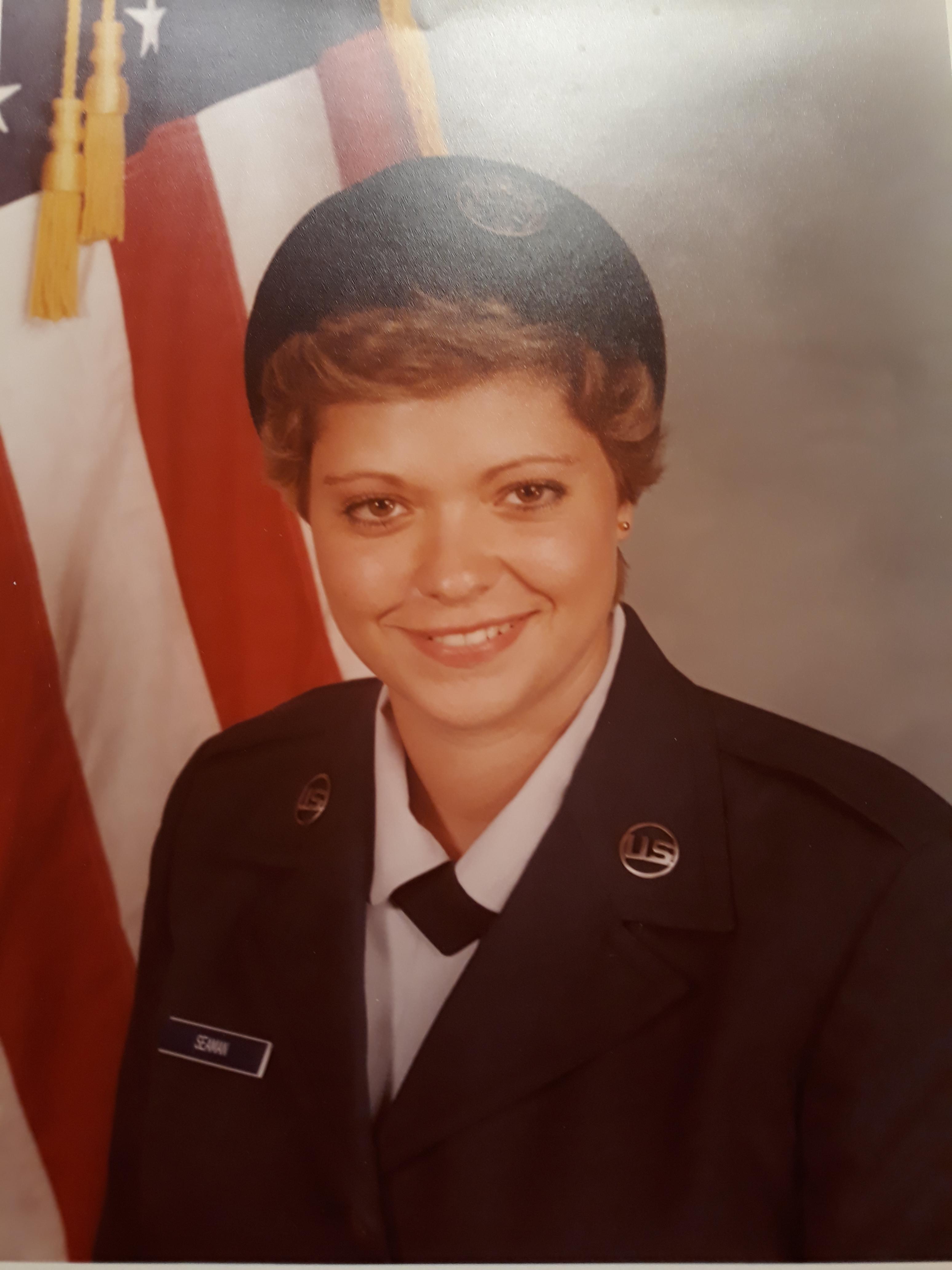“I’m an adventurer,” says Doreen Seaman, assistant principal at P.S. 57 on Staten Island. She brings plenty of enthusiasm to that job and to every other aspect of her life. Her three greatest fun enthusiasms are the New York Mets, travel, and shoes.
But Doreen is an educator who didn’t like school. She says, “Even though I did well, I was bored and didn’t want to go to college. I didn’t like that way of learning.”
As a very young woman, she joined the Air Force, although not before doing a stint in business, the most memorable job being at Salomon Brothers, where she was a successful sales assistant. She says, “They were wonderful to me and pushed me forward, but without a degree there was just so much I could do.”
Because she loved to fly and travel, and she was taking flying lessons to earn a pilot’s license, she volunteered for the Air Force without much conflict. Her father George was a little taken aback, but her mother Joan, also an adventurer at heart, was enthusiastic.
“I always wanted to be in the Airforce, though to tell you the truth, I wanted to be in the Navy even more,” she laughs. The Navy was well known for offering the greatest travel opportunities. “What stopped me is I knew I’d be known as Seaman Seaman. Believe me Airman Seaman was bad enough.”
She took the plunge and was soon posted to Columbus Airforce Base in Mississippi, where she eventually became a non-commissioned officer in the Physiological Training Unit. As the only woman, she had to work twice as hard to prove herself. She served as a platform instructor, teaching aircrew members how to, among other things, execute a parachute landing without breaking an ankle or leg. To land safely, parts of the body must it the ground properly.
The physiological training component involved teaching pilots about the effects of altitude on their brains. She says, “We’d put them on the vertigon and spin them to teach them how to deal with a plane that is going out of control.”
Looking for a change, she put in for a transfer to Wiesbaden, West Germany, although she really missed the unit in Mississippi. “The people I worked with in Mississippi were like my brothers,” she says.
Being a traveler and a history buff, she enjoyed being able to hop on a train and learn more about the rest of Europe. “But I did only about a third of the work I did in Mississippi and I was bored.”
She married another airman who had began studying through the University of Maryland European Campus, and she decided to take classes as well. The notion of sitting in a classroom still didn’t appeal. After leaving the Air Force, she moved with her husband to College Park, Maryland, to finish her degree, becoming a Dean’s Scholar, a Senatorial Scholar, and eventually graduating Summa Cum Laude.
Then, at 34, she found herself back on Staten Island, this time with a baby girl, and she was in total upheaval. She had only ever taught adults and resisted her father’s urging to become a schoolteacher. Besides, that would mean figuring out what to do with baby Michelle. Maybe that level of challenge had its own appeal. They went off to Wagner College together, and Michelle played on classroom floors till her mother earned an MA, Magna Cum Laude.
Doreen started out as a part-time English Language Arts teacher at P.S. 8 on Staten Island. When she became a classroom teacher at P.S. 59 and heard her second graders complaining that they hated math, she seized that challenge, too, and became a math content specialist. Her favorite job as a teacher was as a math coach at the UFT’s Teachers Training Center where she met an inspiring mentor, Naomi Isaac-Simpson who offered “deep, intriguing conversation and had very high expectations for us.”
“I loved foundational math and I loved training teachers in math,” she said.
Today, school leadership allows her to affect change, but does not offer the same instructional opportunities. “But now I have more influence. I like watching a teacher’s progress in their craft, and I like being sought out for advice, and being asked to make suggestions for improvement.”
Another advantage is getting to know all the children in the building. “Especially as an AP,” she says, “who supervises lunch, supervises arrival and dismissal, handles discipline, you know the majority of students and have watched them grow and develop through the years. We can have such an impact on their approach to education, to socialization, to communication, and to each other.”
That is a bond she is going to miss when she retires in February. She says the students’ “hugs, their desire to talk to me, their jokes, their little gifts – drawings, bracelets – always filled me with such joy and love.”
While she is still young, she wants to travel more, possibly even become a tour guide. Her season tickets to the Mets won’t go to waste. And she aims at learning much more about photography, which has been her hobby. (Speaking of aims, if really pressed, she will confess to having an expert marksman ribbon from the Air Force.) She seeks hands-on photography classes that are compatible with “my learning style, which is visual, tactile and kinetic.”
What she believes she’ll bring to the endeavor is a work ethic and perfectionism which the military “strengthened and embedded in my being.” Befitting someone who has spent years in flight: she intends to travel as far north as possible and photograph the Northern Lights. “I saw them while in Arctic survival school,” she says, “but we didn’t have cell phones in the early 80s, so they’re only photographed in my memory.”

